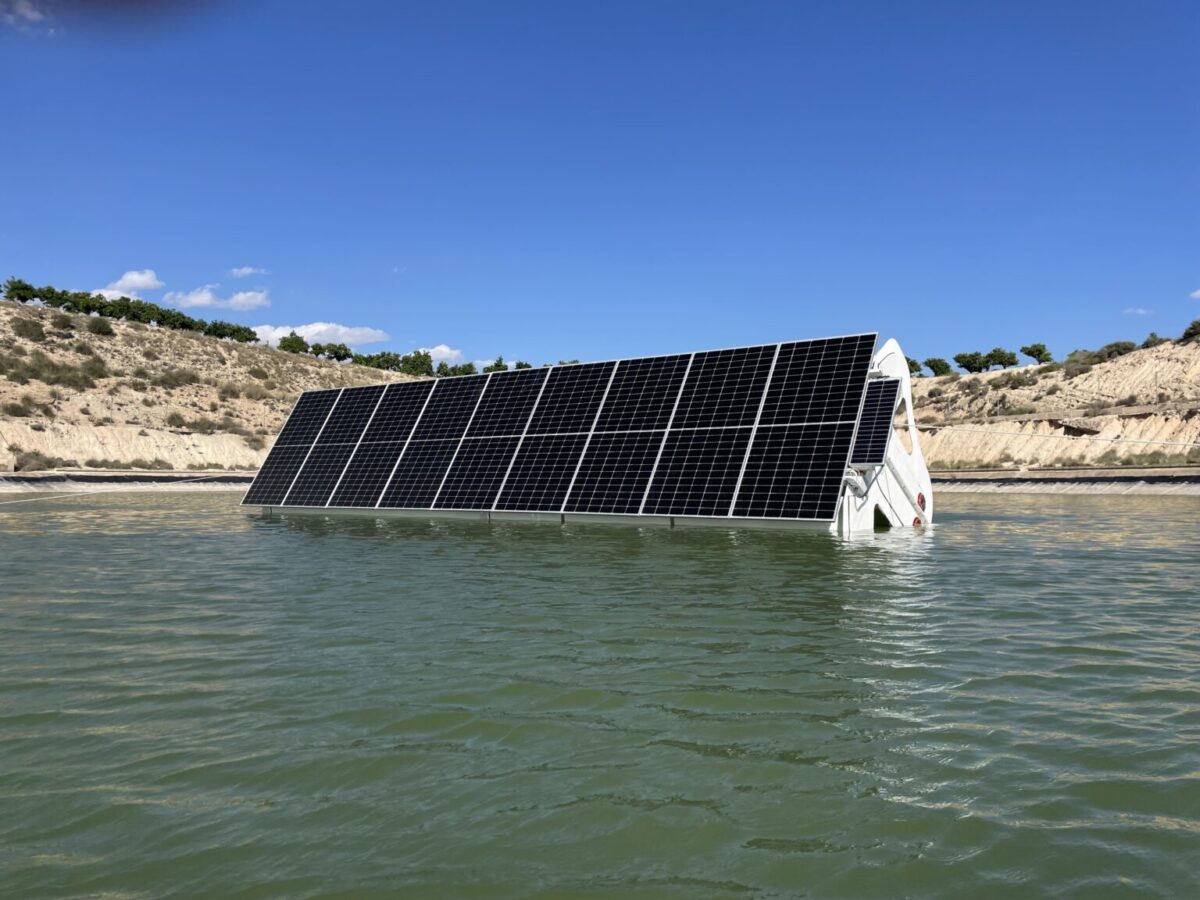From pv magazine Spain
Soltec Innovations, the innovation unit of solar tracker manufacturer Soltec, has developed a floating solar tracker for reservoirs, irrigation ponds, and other inland bodies of water.
The new Flotus design is based on three main components: two longitudinal floats and a central floodable tank, responsible for regulating the east-west rolling movement.
“We have redefined the traditional approach,” said Ignacio Melón, general manager of Soltec Innovations and the head of the project. “The existing solutions in this segment were based on terrestrial photovoltaic structures on floats. With Flotus, we have started from a nautical structure equipped with photovoltaic modules, optimizing energy efficiency through better orientation and solar tracking.”
Soltec said a significant advantage of this technology is its ability to allow most light to pass through. The plant’s design, with followers in rows separated by at least 2 meters, avoids module shading during backtracking and, unlike traditional floating systems, allows the use of bifacial panels.
It said that robustness and stability are other strengths of Flotus. Equipped with pumps, the central tank not only provides mobility, but also acts as ballast, allowing the tracker to maintain its operation even in wind gusts of more than 100 kmh. Flotus stands out for its east-west tracking system, characteristic of terrestrial horizontal solar trackers, and its advanced naval design.
The manufacturer said that another advantage of Flotus over fixed floating structures is its ability to increase energy production by 15% to 25%, depending on latitude, especially during the first and last hours of the day. Thanks to the cooling effect of water, Flotus also surpasses the production of terrestrial solar trackers.
Soltec claimed that “Flotus is especially interesting for hybridizing hydraulic plants, maximizing the use of its already amortized electrical energy evacuation infrastructure.”
The company is now securing the first expressions of interest from developers in Spain and the United States, with a view to carrying out the first pilot projects next year.
This content is protected by copyright and may not be reused. If you want to cooperate with us and would like to reuse some of our content, please contact: editors@pv-magazine.com.








By submitting this form you agree to pv magazine using your data for the purposes of publishing your comment.
Your personal data will only be disclosed or otherwise transmitted to third parties for the purposes of spam filtering or if this is necessary for technical maintenance of the website. Any other transfer to third parties will not take place unless this is justified on the basis of applicable data protection regulations or if pv magazine is legally obliged to do so.
You may revoke this consent at any time with effect for the future, in which case your personal data will be deleted immediately. Otherwise, your data will be deleted if pv magazine has processed your request or the purpose of data storage is fulfilled.
Further information on data privacy can be found in our Data Protection Policy.